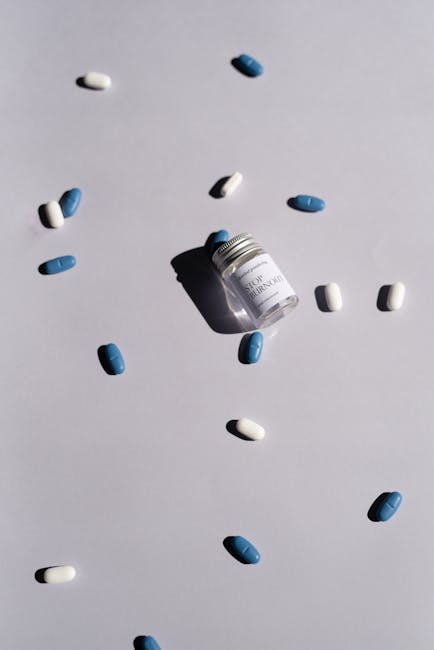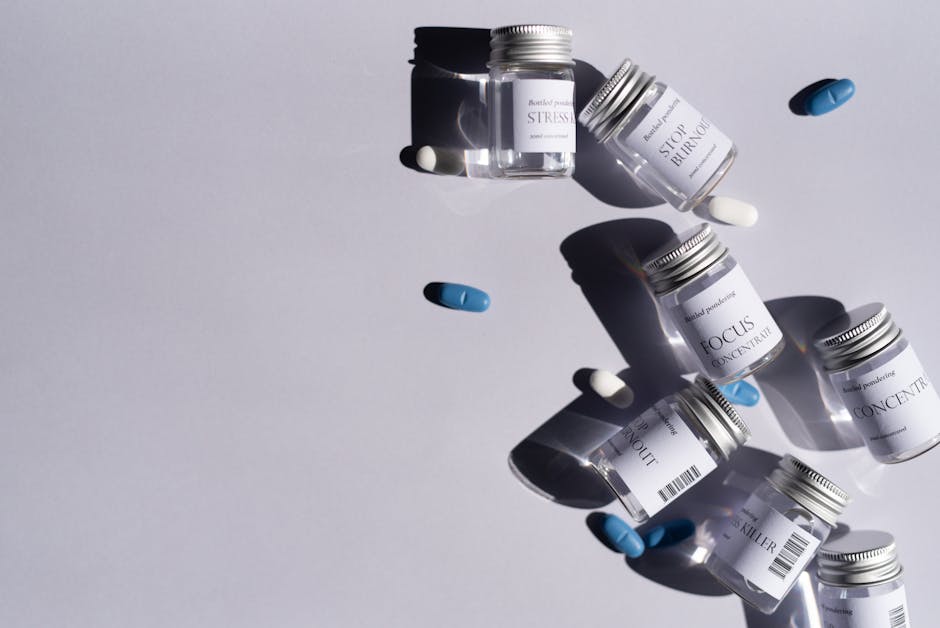Understanding Personal Hygiene
Personal hygiene is a topic that affects every individual, regardless of age, gender, or lifestyle. It is a crucial aspect of maintaining overall health and well-being.
Definition of personal hygiene
Personal hygiene refers to the practice of keeping oneself clean and free from disease-causing germs. It involves activities such as bathing, brushing teeth, washing hands, and maintaining clean clothing. Good personal hygiene is essential for both physical and mental health.
Importance of personal hygiene
Practicing good personal hygiene is vital for many reasons. It helps prevent the spread of diseases, contributes to personal comfort and well-being, and plays a significant role in social interactions. A good hygiene routine can also boost self-esteem and body image.
Types of personal hygiene
Personal hygiene encompasses several different areas, each of which is important for maintaining overall health.
Hand hygiene
Hand hygiene involves washing hands regularly with soap and water, especially before eating and after using the restroom. This simple practice can significantly reduce the spread of bacteria and viruses.
Nail hygiene
Nail hygiene includes keeping nails clean and trimmed to prevent the accumulation of dirt and bacteria.
Oral hygiene
Oral hygiene involves regular brushing and flossing to prevent tooth decay and gum disease. Regular dental check-ups are also part of maintaining good oral hygiene.
Body/Skin/Hair hygiene
Body hygiene involves regular bathing to remove dirt and bacteria from the skin. Hair hygiene includes washing and conditioning hair regularly to keep it clean and healthy.
Foot hygiene
Foot hygiene involves washing feet regularly, keeping toenails trimmed, and wearing clean socks and shoes to prevent foot odor and fungal infections.
Food hygiene
Food hygiene includes practices like washing fruits and vegetables before eating, cooking food thoroughly, and storing food properly to prevent foodborne illnesses.
Clothing hygiene
Clothing hygiene involves wearing clean clothes and regularly washing them to remove dirt and bacteria.

The Practice of Good Hygiene Habits
Practicing good hygiene habits is not just about cleanliness; it’s about maintaining good health and preventing the spread of diseases. Here are some essential hygiene practices everyone should follow.
Washing your body
Regular bathing is essential for removing dirt, sweat, and bacteria from your skin. It’s also important for preventing body odor. Use a gentle, fragrance-free soap and warm water for best results.
Washing your hands
Hand washing is one of the most effective ways to prevent the spread of diseases. It’s especially important before eating, after using the restroom, and after touching dirty objects.
When to wash your hands
Wash your hands before preparing or eating food, after using the restroom, after coughing or sneezing, after handling garbage, and after touching animals or animal waste.
Washing your genitals
Keeping your genitals clean is crucial for preventing infections and maintaining sexual health. Use mild soap and warm water, and always wipe from front to back to prevent the spread of bacteria.
Preventing body odor
Regular bathing, wearing clean clothes, and using deodorant can help prevent body odor. Eating a healthy diet and staying hydrated can also help control sweat and body odor.
Handling food safely
Proper food handling is crucial for preventing foodborne illnesses. Always wash your hands before preparing food, cook food thoroughly, and store leftovers properly.
Preventing bad breath
Regular brushing, flossing, and dental check-ups can help prevent bad breath. Drinking plenty of water and avoiding foods with strong odors can also help.
Dental hygiene
Good dental hygiene involves regular brushing and flossing, using mouthwash, and having regular dental check-ups. These practices can help prevent tooth decay, gum disease, and bad breath.
Nail care
Keeping your nails clean and trimmed can help prevent the spread of bacteria and fungal infections. Avoid biting your nails, and use a nail brush to clean under your nails regularly.

Menstrual and genital hygiene
Menstrual and genital hygiene is an important aspect of personal hygiene for women. It involves practices like changing sanitary pads or tampons regularly, washing the genital area with mild soap and water, and avoiding douching or using scented products in the genital area.
The Impact of Good Hygiene
Good hygiene has a significant impact on our health, well-being, and social interactions. Here are some ways good hygiene affects us.
How good hygiene affects you
Good hygiene can help prevent illnesses, improve your appearance, and boost your self-esteem. It can also make you feel more comfortable and confident in social situations.
Advantages of good oral hygiene
Good oral hygiene can prevent tooth decay, gum disease, and bad breath. It can also improve your overall health, as poor oral health has been linked to heart disease, diabetes, and other serious health conditions.
Menstrual hygiene and health promotion
Proper menstrual hygiene can prevent infections, discomfort, and odor. It can also promote overall health and well-being. For more information on this topic, check out our article on Preventive Healthcare.
The role of hygiene in preventing diseases
Good hygiene plays a crucial role in preventing the spread of diseases. Regular hand washing, for example, can prevent the spread of many common illnesses like the flu and common cold. Proper food handling can prevent foodborne illnesses, and good oral hygiene can prevent gum disease and other oral health problems.

The Consequences of Poor Hygiene
Poor hygiene can have serious consequences for your health and well-being. Here are some conditions that poor personal hygiene can signal and the negative effects it can have.
Conditions that poor personal hygiene can signal
Poor personal hygiene can be a sign of various health conditions, including skin infections, dental problems, and parasitic infestations. It can also be a sign of mental health issues like depression or dementia.
Negative effects of poor personal hygiene
Poor personal hygiene can lead to a variety of problems, including body odor, tooth decay, gum disease, and skin infections. It can also affect your self-esteem and social interactions.
Signs of poor oral hygiene
Signs of poor oral hygiene include bad breath, tooth decay, gum disease, and oral infections. Regular dental check-ups can help detect these problems early and prevent serious health issues.

Enhancing Personal Hygiene Practices
Improving your personal hygiene practices can have a significant impact on your health and well-being. Here are some tips for enhancing your personal hygiene.
Choosing the right personal hygiene products
Choosing the right personal hygiene products is crucial for maintaining good hygiene. Here are some products you might find helpful.
Personal cleansing wipes
Personal cleansing wipes can be used for quick clean-ups when you don’t have access to a shower or bath. They’re also great for freshening up during the day.
Rinse-free body washes
Rinse-free body washes can be used without water, making them a great option for camping trips or other situations where you don’t have access to a shower.
Hand sanitizers
Hand sanitizers can be used to kill germs on your hands when you don’t have access to soap and water. They’re a great option for on-the-go hygiene.
Bed pads and underpads
Bed pads and underpads can be used to protect your bedding and furniture from spills and leaks. They’re especially useful for people with incontinence or other medical conditions.
Hygiene routine tips
Establishing a regular hygiene routine can help ensure that you’re taking care of all aspects of your personal hygiene. This might include daily activities like brushing your teeth and bathing, as well as regular activities like dental check-ups and washing your clothes.
Importance of regular dental check-ups
Regular dental check-ups are crucial for maintaining good oral hygiene. They can help detect problems early and prevent serious health issues. For more information on this topic, check out our article on Natural Ways to Relieve Panic Attacks.
Teaching children hygiene
Teaching children about hygiene from a young age can help them develop good hygiene habits that will last a lifetime. This includes teaching them to wash their hands regularly, brush their teeth twice a day, and bathe regularly.
Healthy habits during menstruation
Practicing good hygiene during menstruation is crucial for preventing infections and promoting overall health. This includes changing sanitary pads or tampons regularly, washing the genital area with mild soap and water, and avoiding douching or using scented products in the genital area.
Observance of Menstrual Hygiene Day – May 28
Menstrual Hygiene Day is observed on May 28 each year to raise awareness about the importance of good menstrual hygiene for women and girls worldwide. It’s a great opportunity to learn more about this important aspect of personal hygiene.
Practicing good hygiene is crucial for maintaining good health and well-being. Whether it’s washing your hands regularly, brushing your teeth twice a day, or maintaining a regular hygiene routine, these practices can have a significant impact on your overall health. So, start practicing good hygiene habits today and enjoy the benefits for a lifetime.
For more health and wellness tips, check out our other articles on Mindful Eating as a Form of Self-Care, Self-Care, and Building Healthy Relationships.
#HealthAwareness #PreventiveHealthcare #HealthyLiving #HealthandWellness #HealthyEating
Source: Healthdirect, Personally Delivered, Medical News Today
The Importance of Practicing Good Hygiene Habits
What is hygiene?
Hygiene refers to the practices and habits that help maintain cleanliness and promote good health. It involves actions such as washing hands, taking regular showers, brushing teeth, and keeping our surroundings clean.
Why is hygiene important?
Practicing good hygiene habits is crucial for preventing the spread of diseases and infections. It helps remove germs, bacteria, and viruses from our bodies and surroundings, reducing the risk of illness. Good hygiene also promotes personal well-being, boosts self-confidence, and enhances overall quality of life.
How often should I wash my hands?
It is recommended to wash your hands with soap and water for at least 20 seconds, especially before eating, after using the restroom, after coughing or sneezing, and after being in public places. Regular handwashing helps eliminate harmful germs and prevents the transmission of diseases.
Why is it important to cover your mouth and nose when coughing or sneezing?
Covering your mouth and nose when coughing or sneezing is essential to prevent the spread of respiratory droplets that may contain germs. By using a tissue or coughing/sneezing into your elbow, you can minimize the risk of infecting others with illnesses such as the common cold, flu, or COVID-19.
How often should I brush my teeth?
It is recommended to brush your teeth at least twice a day, preferably in the morning and before bedtime. Brushing helps remove plaque, bacteria, and food particles that can lead to tooth decay, gum disease, and bad breath. Don’t forget to replace your toothbrush every three to four months or sooner if the bristles become frayed.
Why is it important to maintain personal hygiene during menstruation?
Maintaining personal hygiene during menstruation is crucial to prevent infections and maintain overall health. Changing sanitary pads or tampons regularly, washing the genital area with mild soap and water, and avoiding the use of scented products can help prevent bacterial growth and reduce the risk of urinary tract infections and other complications.
How can I maintain good hygiene in public places?
To maintain good hygiene in public places, it is important to follow certain practices. These include using hand sanitizers or washing hands after touching surfaces, avoiding touching your face, covering your mouth and nose when coughing or sneezing, and practicing social distancing. Additionally, it is advisable to carry tissues or wipes to clean surfaces before use.
Why is it important to keep our surroundings clean?
Keeping our surroundings clean is essential for preventing the accumulation of dirt, dust, and germs. Regular cleaning and disinfection of surfaces, floors, and commonly used items help eliminate pathogens and reduce the risk of infections. A clean environment also promotes mental well-being and creates a pleasant and healthy living or working space.
How can I encourage good hygiene habits in children?
Encouraging good hygiene habits in children is important for their health and well-being. Lead by example and demonstrate proper handwashing, teeth brushing, and other hygiene practices. Make it fun by using songs or games to engage them. Explain the importance of hygiene in simple terms and reward their efforts. Creating a routine and providing age-appropriate hygiene products can also help establish good habits.
What are some common hygiene mistakes to avoid?
Some common hygiene mistakes to avoid include not washing hands for a sufficient duration, neglecting to clean commonly touched surfaces, using expired or dirty personal care items, sharing personal items like towels or razors, and not covering your mouth and nose when coughing or sneezing. It is important to be aware of these mistakes and take necessary precautions to maintain good hygiene.



